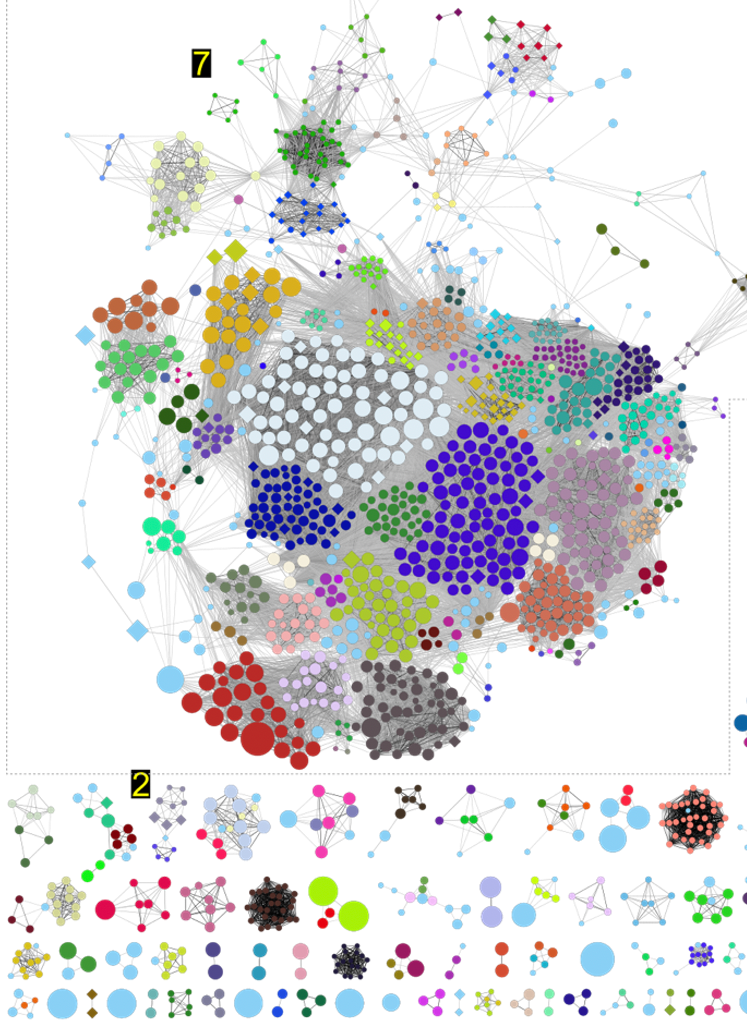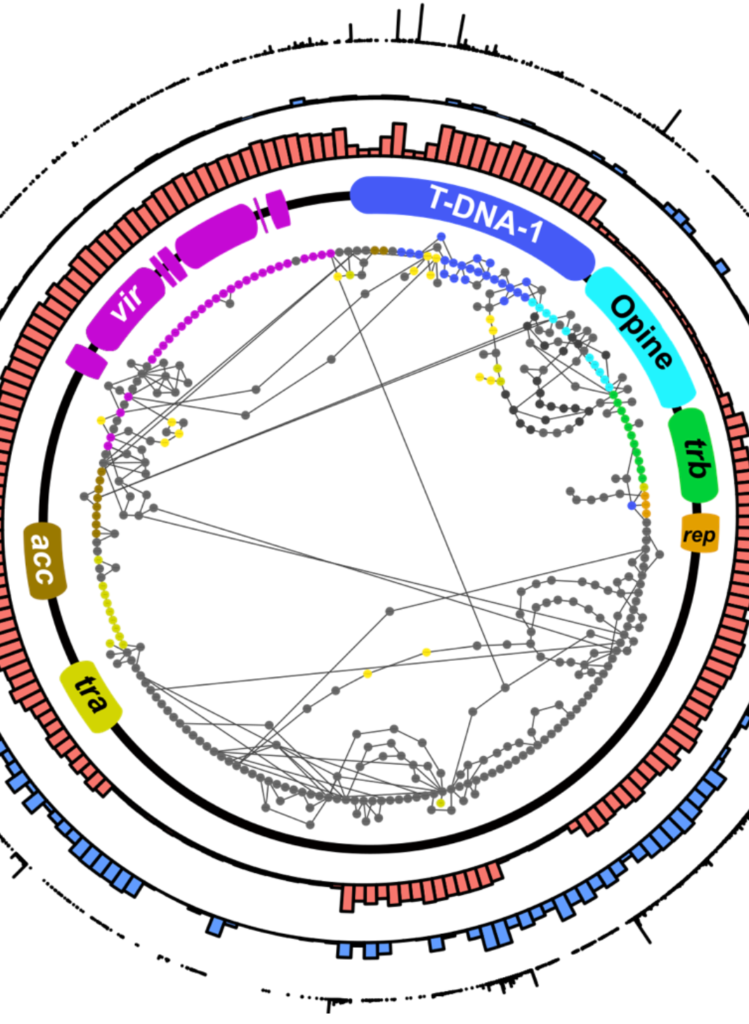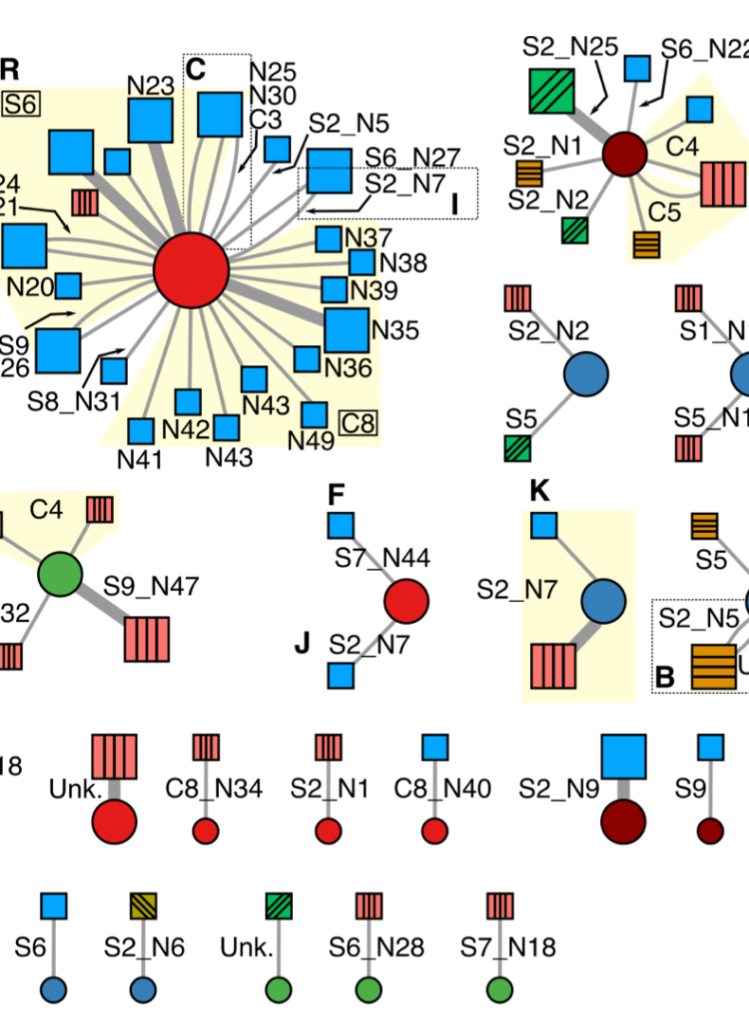Weisberg lab
Evolution of Plant/Microbe Interactions
Research Interests
Research in the Weisberg lab focuses on the evolution and epidemiology of plant pathogens, both bacterial and fungal. We seek to characterize mobile genetic elements (MGEs) and their influence on microbial symbioses (pathogens and/or mutualist symbionts). We utilize comparative and population genomics of large datasets to classify and characterize the evolution of MGEs in diverse systems, primarily agricultural phytopathogens, as well as in nitrogen fixation symbiosis. We also work to develop pipelines for the epidemiology of major agricultural pathogens, including those that incorporate the movement of MGEs independently of strains.
Mobile genetic elements and disease
Mobile genetic elements, such as plasmids or integrative conjugative elements (ICEs) play a major role in many plant/microbe interactions, such as disease or symbiosis.
These elements, such as the Agrobacterium Ti plasmids, can carry genes essential for virulence and promote their transfer horizontally from one bacteria to another. In some cases this results in the emergence of new pathogen lineages.

Crown gall caused by Agrobacterium tumefaciens
Areas of Research Interest

Characterization of mobile elements

Evolution of mobile genetic elements

Genomic epidemiology
News from the lab
- Welcome Alex and LaurenDr. Alex Zaccaron has joined the lab as a postdoctoral researcher to work on Eastern Filbert Blight genomics and epidemiology. He is co-mentored in the Jared… Read more: Welcome Alex and Lauren
- 2024 APS Pacific division meetingLab members Dr. Arafat Rahman, Jewell Jung, and Andrea Schiffer presented their research as posters at the 2024 APS Pacific Division meeting in Corvallis. Great job!
- lab collecting tripThe lab had a great field trip collecting crown gall samples from a local vineyard. We are looking forward to isolating and characterizing Agrobacterium from them… Read more: lab collecting trip
- recruiting a phd student in fungal genomicsThe Weisberg lab (Oregon State University) and Mahaffee lab (USDA-ARS) are recruiting a PhD student for research in fungal comparative genomics and evolution. Start date is… Read more: recruiting a phd student in fungal genomics
- Welcome Arafat!Dr. Arafat Rahman is joining the lab as a postdoctoral scholar. Welcome to the lab!
- New lab membersWelcome to Andrea and Jewell upon joining the lab!